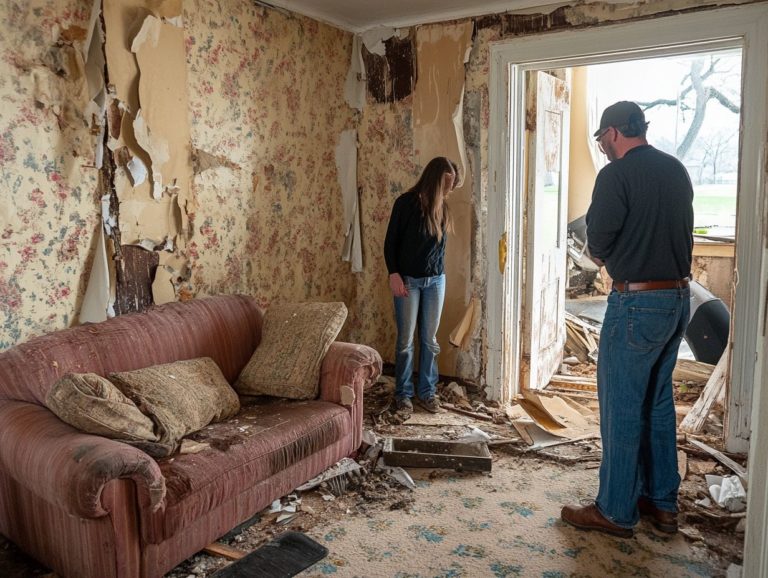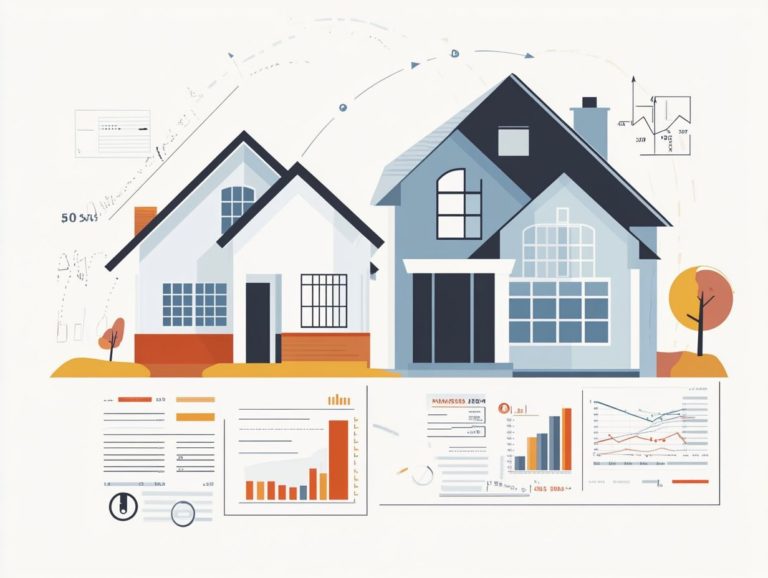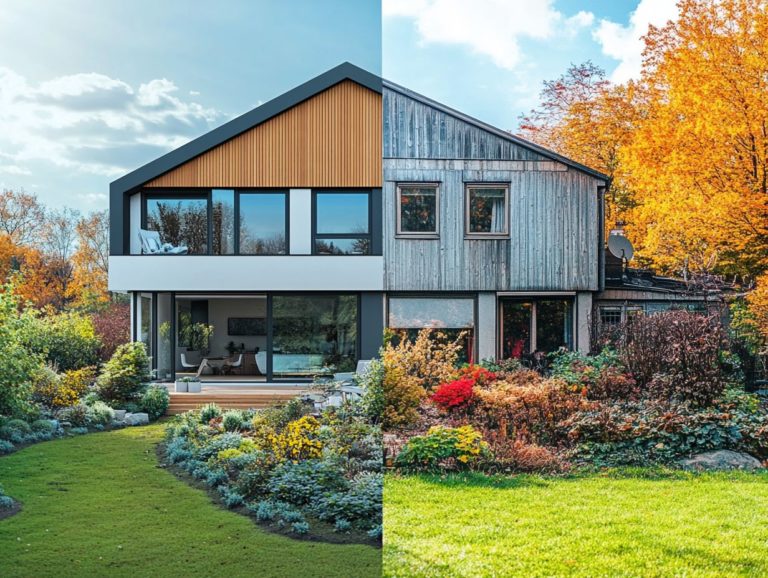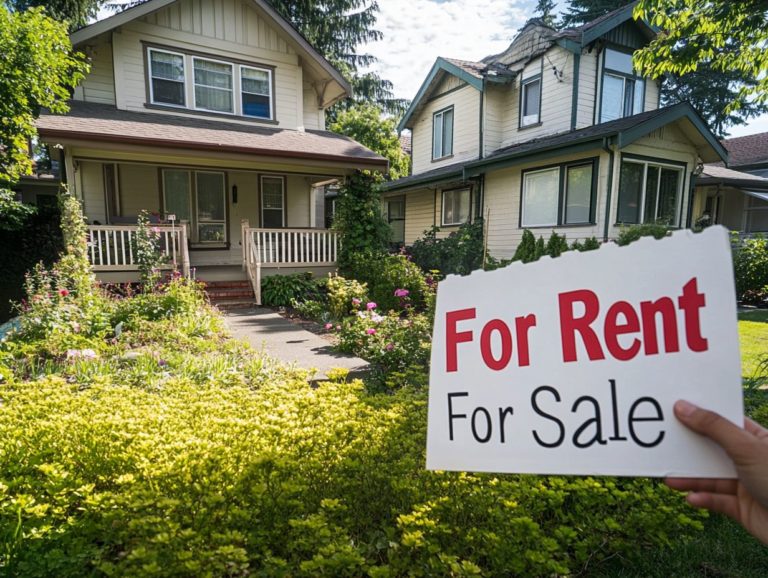What Is a 203(k) Loan?
If you re contemplating the purchase of a home that requires some renovations, a 203(k) loan could be just what you need.
These loans are specifically designed to help you finance both the acquisition of the property and the essential repairs, providing a remarkable combination of flexibility and opportunity.
This article will guide you through the application and approval process, ensuring you re fully prepared to embark on your home renovation journey with confidence.
Contents
Key Takeaways:
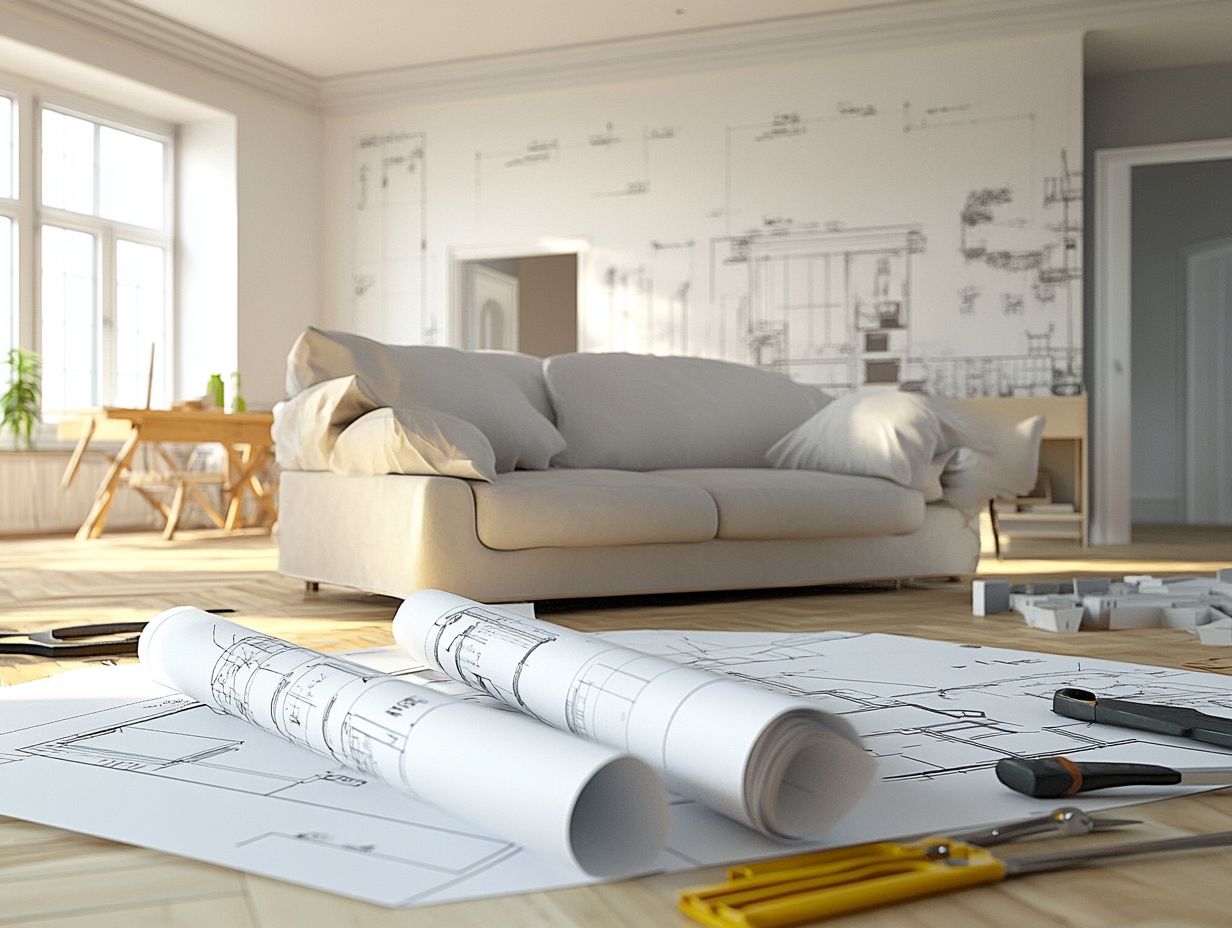
- A 203(k) loan helps finance the purchase or refinance of a property with renovation costs.
- Choose between two types: Standard for major renovations and Limited for smaller ones.
- 203(k) loans streamline the renovation process and offer flexible financing options.
- Eligibility requirements apply for both borrowers and properties.
Overview of 203(k) Loans
The FHA 203(k) loans are exceptional government-backed financing options designed specifically for homeowners and homebuyers eager to enhance their properties.
With these loans, you can seamlessly merge the costs of purchasing a home with essential repairs and renovations into a single mortgage.
This approach simplifies the financing process while helping save energy and ensuring safety in housing, making it a smart choice for those looking to invest in their living spaces.
Definition and Purpose
The FHA 203(k) loan is a unique mortgage option designed to help you renovate your home by offering financing that covers both the purchase price and rehabilitation costs.
This innovative loan program is especially advantageous if you re a homebuyer or a homeowner eager to transform a fixer-upper into your dream residence.
By streamlining the financing process, it enables you to incorporate essential repairs, upgrades, or even complete remodels into your mortgage.
Instead of grappling with separate loans and the hassle of multiple approvals, you can effortlessly manage all your housing needs within a single, cohesive financial strategy.
The FHA 203(k) loan not only simplifies your journey to homeownership but also fosters community revitalization by boosting property values and enhancing aesthetic appeal, benefiting the larger neighborhood.
Types of 203(k) Loans
You ll find two primary types of FHA 203(k) loans: the Limited 203(k) and the Standard 203(k).
Each option is thoughtfully designed to address various home improvement needs and cater to the unique financial situations of borrowers like yourself.
Standard 203(k) Loan
The Standard 203(k) loan is tailored for those ambitious enough to tackle extensive home renovations that demand significant repairs or rehabilitation.
This financing option enables you to fund projects that exceed $35,000.
If you’re considering substantial improvements to your property, whether it s structural repairs or comprehensive interior upgrades, this loan is ideal for your needs.
To qualify for a Standard 203(k) loan, you ll typically need to meet specific eligibility criteria, including maintaining a minimum credit score and a manageable debt-to-income ratio. (This is a measure of how much of your income goes toward paying debts.)
Your renovation plans can encompass a variety of enhancements, from roofing and plumbing to energy efficiency upgrades.
It s essential that these projects are supervised by a licensed contractor, ensuring that all work adheres to local codes and standards, thus protecting your investment in the long run.
Explore your options today and take the first step towards your dream home!
Limited 203(k) Loan

The Limited 203(k) loan is designed for smaller home improvement projects. It caps repair costs at $35,000, making it ideal for minor renovations and upgrades.
This loan is great for homeowners wanting to enhance their living spaces without taking on extensive debt. It covers a range of projects, from cosmetic updates like new flooring and kitchen enhancements to essential repairs such as electrical or plumbing work.
You ll find the application process refreshingly streamlined. This enables you to access funds quickly while minimizing paperwork and hassle. With an escrow account for disbursement, you can rest easy knowing that contractors are paid directly, fostering trust and accountability throughout your renovation journey.
The Limited 203(k) loan is your ticket to revitalizing your home with ease!
Eligibility for 203(k) Loans
To qualify for FHA 203(k) loans, you must meet specific borrower and property requirements. This means you need to meet minimum credit score requirements and down payment criteria, all designed to make these loans accessible to a diverse array of homebuyers.
Borrower Requirements
When considering FHA 203(k) loans, you typically need to meet some borrower requirements. These include a minimum credit score, a down payment of at least 3.5%, and adherence to FHA mortgage limits, which can vary depending on your location.
These loans are specifically crafted for individuals looking to purchase or refinance a home in need of rehabilitation. To qualify, most lenders will ask for a credit score of at least 580. However, some might accept scores as low as 500 if you re willing to make a higher down payment. The good news is that this down payment can sometimes be gifted, providing you with added flexibility as an eligible borrower.
Keep in mind that FHA mortgage limits are influenced by the median home prices in your area. It s crucial for you to carefully research the limits set for your specific geographic region to ensure you meet all the requirements.
Property Requirements
Property requirements for FHA 203(k) loans dictate that the home must serve as your primary residence. It also needs to meet essential health and safety standards set by the FHA. This ensures that your living environment is secure and conducive for you and your family.
The FHA conducts a thorough examination for safety hazards, including potential electrical issues or structural concerns.
Eligible property types include single-family homes, specific multi-family units, and qualified condos. This broadens the horizon for various buyers. The FHA’s stringent evaluation process seeks to protect homeowners and preserve the integrity of neighborhoods, fostering community stability and promoting sustainable living environments.
By upholding these standards, the FHA plays a vital role in cultivating safe housing options for a diverse array of families, ensuring that your home can be a sanctuary in which you thrive.
Benefits of 203(k) Loans
Discover how FHA 203(k) loans can transform your renovation dreams into reality with ease! The advantages of these loans lie in their capacity to simplify the renovation process while offering flexible financing options.
This enables you as a homebuyer to effectively invest in home improvement projects, turning your vision into reality with confidence.
Streamlining Renovation Process

FHA 203(k) loans offer a streamlined approach to renovations by allowing you to secure financing for both the purchase of a home and the necessary repairs with a single loan. This eliminates the hassle of juggling multiple loans.
This financial structure not only simplifies your budgeting but also makes it easier for you to invest in fixer-uppers. With a single lender overseeing the entire project, you can navigate the financing process with greater ease, reducing the headaches often associated with coordinating various loans.
You’ll find that this efficiency is immensely beneficial, as it consolidates paperwork and calendar management into one cohesive package. This leaves you free to concentrate on selecting the right renovations.
Funds for repairs are typically released in stages, helping keep the renovation on track. The result? Less stress and more streamlined communication throughout your renovation journey.
Flexible Financing Options
FHA 203(k) loans offer flexible financing options for homebuyers. You can choose between limited and standard renovation projects while managing your funds through an escrow account.
An escrow account is a secure account held by a third party that manages funds for your renovation projects.
You can also adapt various aspects of the loan, like down payment requirements. Down payment requirements can be as low as 3.5% for qualified buyers. This makes homeownership more attainable.
These loans open doors to countless possibilities! They come with established limits that reflect the housing market in your area, accommodating a diverse range of project scopes without straining your budget.
Importantly, you can also secure financing for energy conservation upgrades, such as installing energy-efficient windows or insulation. This not only contributes to long-term savings but also enhances your property’s value.
With these flexible terms, you are enabled to invest in your home thoughtfully and sustainably.
Application and Approval Process
Applying for FHA 203(k) loans involves several steps. Each step requires careful attention.
You ll start by selecting a licensed contractor who meets your project needs.
Next, it s essential to gather and submit the required documentation. Once that s in order, you ll seek approval from your lender to kick off the renovations.
Steps to Apply for a 203(k) Loan
To apply for a 203(k) loan, you ll need to follow a few specific steps, including gathering the necessary documentation, selecting a licensed contractor, and completing the application form with your lender.
- First, reach out to lenders to get a clear understanding of the requirements and eligibility criteria for this distinctive financing option.
- Having detailed financial statements, credit reports, and a list of proposed improvements on hand is crucial for a smooth review process.
- Choosing a licensed contractor experienced with 203(k) projects is essential, as they will help ensure that your renovations comply with the necessary guidelines and standards.
- Once you’ve completed the application form, submit it along with your documentation to the lender for processing.
- Maintaining regular communication with your lender can significantly streamline the approval process, allowing you to address any questions or concerns that may come up along the way.
Getting Your Loan Approved and Funds Disbursed
Once you complete the application for an FHA 203(k) loan, the approval process kicks off with a thorough review by your lender, followed by the disbursement of funds through an escrow account designated for your renovation projects.
Typically, lenders will scrutinize your overall financial stability, assess the proposed renovation plan, and estimate the costs involved. The timelines for approval can vary significantly ranging from a few weeks to several months mostly depending on how complete your documentation is and the lender’s current workload.
Key factors influencing this timeline include the complexity of your planned renovations and whether all necessary permits are in place. Once you receive approval, funds will be released progressively from the escrow account, ensuring that expenses are closely monitored while safeguarding both you and the lender throughout the construction process.
Frequently Asked Questions

What Is a 203(k) Loan?
A 203(k) loan is a type of mortgage loan that allows borrowers to finance both the purchase of a home and the cost of renovations or repairs into one loan.
How does a 203(k) loan work?
A borrower can apply for a 203(k) loan through a lender approved by the Federal Housing Administration (FHA). The loan is based on the value of the home after renovations, and the borrower can borrow up to 110% of this value.
Is a 203(k) loan only for buying a home?
No, a 203(k) loan can also be used for refinancing an existing mortgage for the purpose of making renovations or repairs to the home.
What types of renovations can be financed with a 203(k) loan?
A 203(k) loan can be used to finance a variety of renovations, including structural repairs, room additions, kitchen and bathroom remodels, and energy-efficient upgrades.
Do I need to make a down payment for a 203(k) loan?
Yes, a down payment of 3.5% of the total project cost is required for a 203(k) loan. However, this can be paid through a combination of personal funds and gift funds from family members.
Do I need to hire a licensed contractor for a 203(k) loan?
Yes, all renovations and repairs must be done by a licensed contractor. They need approval from your lender and must meet specific qualifications set by the Federal Housing Administration (FHA).
Hiring a qualified contractor is essential to ensure your project runs smoothly and meets all requirements.



